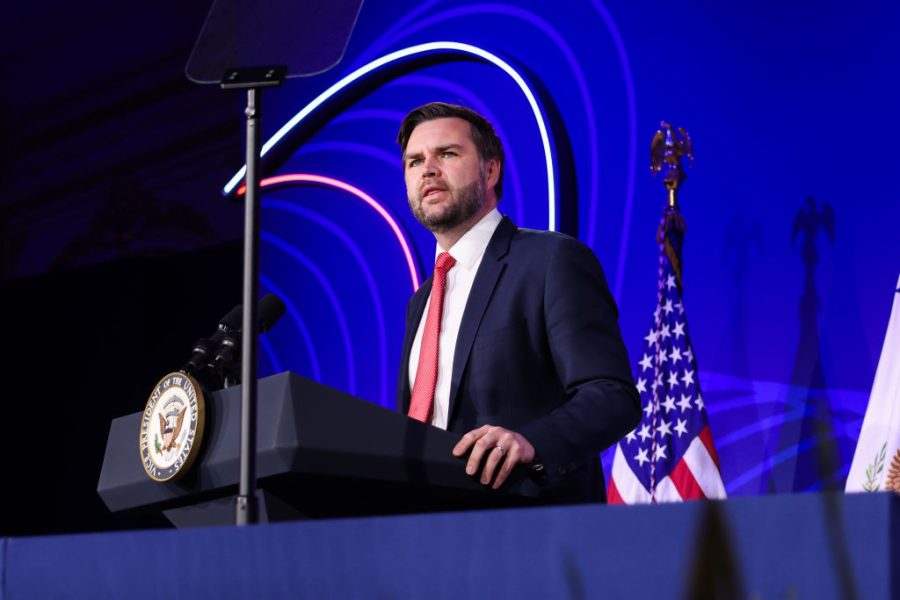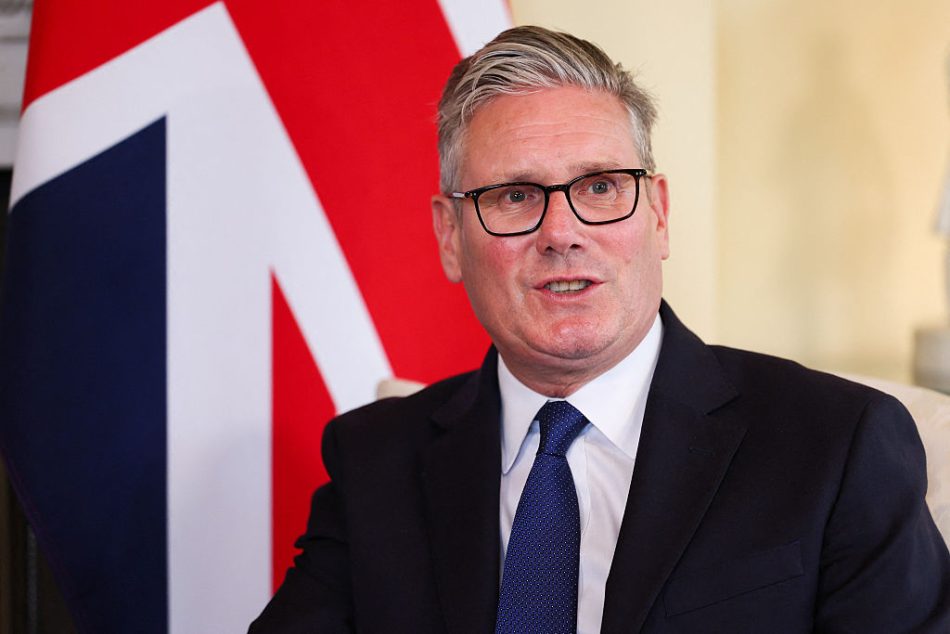At the start of the month, J.D. Vance delivered the address at the Heritage Foundation in Washington for the premiere of a documentary. ‘Live Not By Lies’ is based on the book by Rod Dreher, who is a friend of the American Vice President’s. Vance informed his audience that backstage Dreher told him of a recent interview he had given to a French newspaper. Broadcast on Le Figaro’s online channel, Dreher was described in the tagline as an ‘American intellectual and friend of J.D. Vance’. As Vance joked, maybe that ‘was meant to tarnish [him] in that country’.
It may have been. France does appear to have an axe to grind with Vance, even a centre-right newspaper like Le Figaro. The left-leaning media is more blatant in their hostility. ‘J.D. Vance, more dangerous than Donald Trump?’ asked the weekly magazine L’Express last month. It was the same question posed in November by Courrier International. Broadcasters have recently joined the attack, including the state-owned France Télévisions and the privately-owned BFMTV.
Catholicism has long been the enemy of this caste
Some of this animus is snobbery on the part of the notoriously elitist French media; working-class men like Vance don’t rise to positions of power in France. But there is another reason. As BFMTV mentioned in its report, Vance is a ‘fervent Catholic’.
His faith was scrutinised recently by the centrist magazine, Le Point, which said that Vance’s Catholicism ‘is the polar opposite of that embodied by Joe Biden’. Rather, it is closer to Viktor Orban’s. ‘He is clearly opposed to same-sex marriage, at war with those who defend gender, and hostile to abortion,’ commented the magazine.
A French senator recently described Elon Musk as a ‘buffoon on ketamine’ and Donald Trump as an ‘incendiary emperor’. Neither are regarded in France as ‘men of conviction’, rather as men interested only in money. Vance is different. It is his faith that makes him ‘dangerous’ for the Paris progressive elite.
Catholicism has long been the enemy of this caste. The frontrunner for the 2017 presidential election was the conservative Francois Fillon, who was proud of his faith and made it an important strand of his campaign in 2016. The left-wing press attacked his ‘values’, pointing out that they included opposition to the 2014 gay marriage bill.
In January 2017, a left-wing newspaper accused Fillon of malfeasance, and his campaign never recovered. He was subsequently convicted, but many on the centre-right remain convinced Fillon was targeted by the Paris elite. In 2020, the head of the National Financial Prosecutor’s Office told a parliamentary inquiry investigating judicial independence that in the Fillon affair she had come under ‘enormous pressure’ from the public prosecutor’s office, which interfered ‘on a daily basis’.
Francois Fillon was referenced last week by Marion Maréchal, herself a practising Catholic and also the niece of Marine Le Pen. Reacting to her aunt’s five-year disqualification from politics, Marechal said the time had come for the right to form a united front in the face of what she implied was political persecution. ‘Remember, yesterday it was Francois Fillon,’ she said. ‘Today…it’s Marine Le Pen, tomorrow it will be Bruno Retailleau.’
Retailleau has been the Minister of the Interior since September, and in that time his straight-talking on immigration, Islamism and law and order has made him a hit with the silent majority. He says what they think, and increasingly he is being talked of in presidential terms. The disqualification of Le Pen has increased the speculation that Retailleau may be the only figure capable of uniting the conservative bourgeoise and the working-class vote in 2027.
But Retailleau has also been accumulating enemies in recent months. Left-wing newspapers have taken to describing him as ‘extreme-right’, and his Catholic faith is regularly brought up; so, too, is the fact that he was opposed to the Gay Marriage Bill in 2014.
Retailleau is in many ways a French Vance, and it was notable that he was the only member of the government to endorse what the American Vice President told Europeans in his now infamous speech in Munich. Retailleau agreed there that Europe is suffering a ‘democratic malaise’ because ‘leaders do not follow the aspirations of their people’.
Retailleau is also an implacable enemy of Islamism. Last week he was in London where he gave a keynote speech at the Policy Exchange entitled: ‘The Islamist challenge: how should free societies now respond?’
It was a bold address, far bolder than anything a British politician would dare give. ‘Political Islamism has managed to slip into the new clothes of wokism,’ warned Retailleau. ‘Because it has taken up the great victim narrative to present European Muslims as the new scapegoats, the new damned of the earth. Witness the misuse by political Islamism, like the woke ideology, of a term that the French and British are now familiar with: the term “Islamophobia”.’ Retailleau rejects the term ‘Islamophobia’, describing it as a strategy of the Islamists to ‘paralyse consciences and paralyse wills’.
Retailleau is a close friend of Francois Fillon, and he was one of his staunch supporters during his bid to become president. In an interview in November 2016, Retailleau warned prophetically that Fillon was ‘the target of the system’.
Might that same system soon target Retailleau? He may not be a friend of J.D. Vance’s, but Retailleau shares his faith and many of his convictions. In the eyes of the French elite, that makes him as ‘dangerous’ as the American VP.







Comments